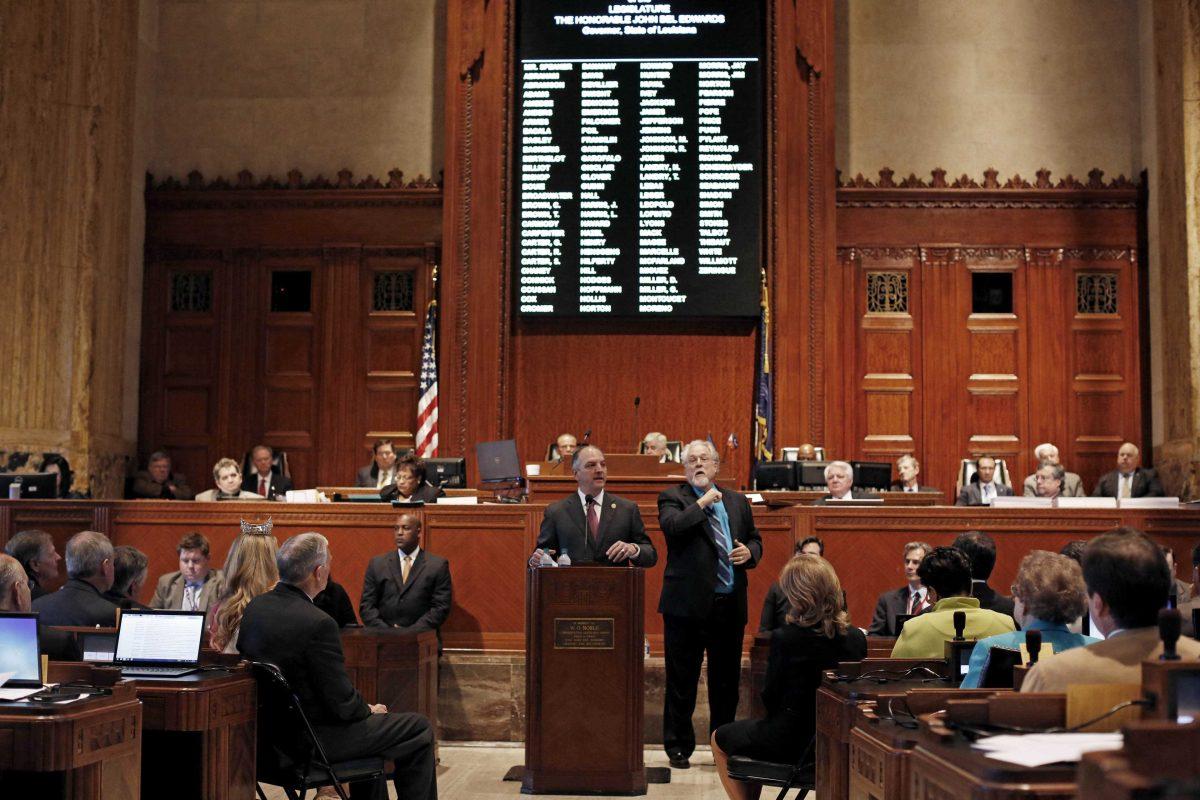The Louisiana House of Representatives voted 53-39 to give formerly incarcerated people a better chance at finding a job with certain state agencies. Now it’s time for the State Senate to follow.
The House voted Tuesday that the state cannot ask about an applicant’s criminal history on a job application. “Banning the box” would them the option of getting to the interview process in a state job.
The question, “Do you have a criminal history?” can be the difference between a person being hired or their application being thrown in the trash.
Formerly incarcerated people often have a tough time seeking employment and returning to life outside prison. Banning the box would give many workers who interacted with the punishment system a fair chance.
Many cities around the country have “ban the box” policies to eradicate a barrier to employment for many formerly incarcerated people. A study of “help wanted” advertisements in Virginia found that out of 192,000 positions, just under 16,000, or 8.23 percent, were open to hiring formerly incarcerated applicants.
For those leaving the punishment system, asking about their criminal history makes it more difficult for formerly incarcerated people to find a job. Shouldn’t we want people who have to be able to adjust to life once they leave prison?
In Louisiana, this isn’t a small amount of people. According to
The Advocate, Louisiana locked up approximately 40,000 people in 2014, which has helped the state earn the title of the nation and world’s incarceration capital.
One in 86 adults in Louisiana is doing time, which is nearly double the national average, according to NOLA.com | The Times Picayune.
Our state’s harsh penalties for nonviolent drug offenders is partly why Louisiana warehouses so many people. According to NOLA.com | The Times Picayune, 64 percent of those serving time in prison are there for non-violent drug offenses, compared to the nationwide average of 48 percent.
Banning the box isn’t only compassionate, it would help grow the economy. A 2011 Economy League of Greater Philadelphia study found putting 100 formerly incarcerated people back to work would increase their lifetime earnings by $55 million and increase their income tax contributions by $1.9 million.
When former felons have jobs, they can help rebuild their family’s income loss that likely accrued when they were in prison. According to a 2006 study published in the Western Criminology Review, 83 percent of family members of formerly incarcerated men provided the recently released family member with financial support.
This income loss affects incarcerated people’s social networks as well as themselves. The 2006 Western Criminology Review study also found that half of the family members who provided financial support presented financial challenges for themselves.
Banning the box can help formerly incarcerated people transition back to life outside prison. Helping these people will aid both them and their families who also suffered when they were in prison.
These families have done nothing wrong yet still pay the price long after one of their family members has left jail.
If Louisiana wants to shed its title of the world’s incarceration capital, we have to craft laws to help those who were formerly incarcerated transition into a stable quality of life, and that most certainly includes employment.
The Senate should recognize their obligation to help end the era of mass incarceration and vote to ban the box.
Michael Beyer is a 22-year-old political science senior from New Orleans.
OPINION: Asking criminal history on job applications hinders formerly incarcerated people
April 26, 2016
Louisiana Gov. John Bel Edwards addresses a Joint Legislative Session in Baton Rouge, La., Monday, March 14, 2016. Edwards said Monday that while Louisiana’s budget troubles will continue to be his focus, he’ll also seek to fulfill campaign promises to raise the minimum wage and enact an equal pay law. (AP Photo/Max Becherer)
More to Discover












